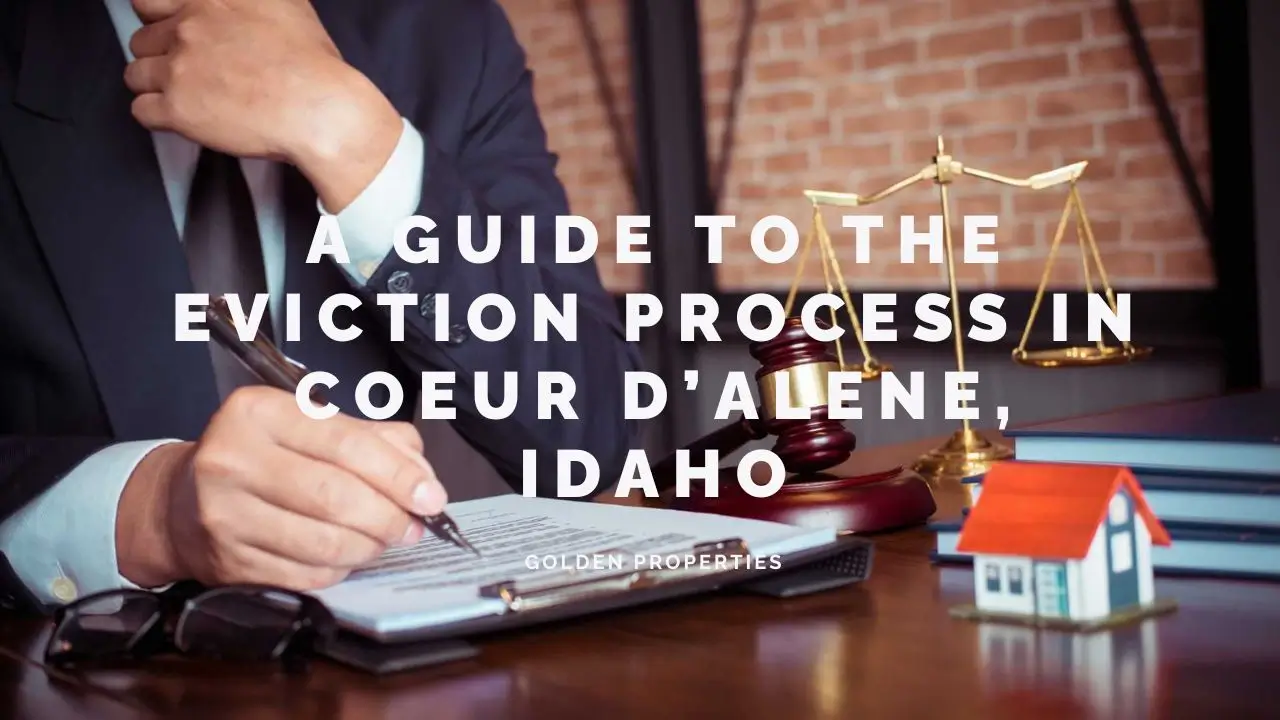Key Takeaways
Eviction Process in Idaho: Idaho landlords must follow a strict legal process when evicting tenants, including proper notice types and correct service methods to avoid legal delays.
Tenant Defenses & Court Proceedings: Tenants may challenge evictions on grounds such as improper notice or discrimination. Landlords should maintain detailed records and follow legal procedures to strengthen their case in court.
Avoiding Unlawful Evictions: Self-help evictions, retaliatory actions, and discriminatory removals are illegal. Seeking professional property management can help ensure compliance and protect landlord interests.
Every landlord hopes to rent to reliable tenants who pay rent on time, maintain the property, and promptly report maintenance issues as per the rental agreement.
However, even with a thorough tenant screening process, challenges may arise that require an eviction. If you are navigating this process for the first time, understanding the necessary steps is crucial. This guide from our expert team at Golden Properties outlines the key aspects of the Idaho eviction process.
The Eviction Process in Idaho
The Idaho eviction process follows a legally defined procedure that must be adhered to strictly as per the Idaho landlord-tenant laws. Below are the essential steps involved as per an eviction lawsuit.
Lease Termination Notice
An eviction begins with a legal cause, which is a valid reason for tenant removal. In Idaho, common legal causes include:
- Non-payment of rent.
- Failure to vacate after lease expiration.
- Violation of lease terms.
- Engagement in illegal activities on the premises.
Once a legal cause is established, the landlord must serve the tenant with an appropriate eviction notice. There are four types of eviction notices in Idaho:
3-Day Notice to Quit
Used for nonpayment of rent. If rent is not paid within three days, the eviction process may continue. Rent is considered late the day after it is due unless otherwise specified in the lease. Idaho landlords are not required to provide a grace period. This type of notice is critical because nonpayment of rent is one of the most common reasons for eviction.

If the tenant fails to respond or make arrangements within the notice period, landlords have the right to proceed with formal eviction proceedings under the Idaho eviction laws. It is advisable for landlords to keep detailed records of rent payments, late notices, and any communication with the tenant regarding overdue rent to present a strong case in court if necessary.
30-Day Notice to Vacate
Applicable to tenants without a lease or those on a month-to-month rental agreement. This notice is not curable, meaning the tenant must vacate within 30 days as per an eviction lawsuit.
This notice is commonly used when landlords wish to terminate a rental agreement for reasons unrelated to tenant violations, such as deciding to sell the property, renovate the unit, or move into the property themselves. This cannot be used when a tenant fails to pay rent.
It is important to provide clear communication to the tenant about the reasons for the termination of lease agreements, as abrupt terminations can sometimes lead to disputes. Additionally, landlords should ensure they comply with fair housing laws to avoid any claims of discrimination or retaliation.
3-Day Notice to Comply or Vacate
Issued when a tenant commits a minor lease violation. The tenant has three days to correct the issue or vacate the premises. Common violations include minor property damage, failure to maintain cleanliness, or refusal to grant landlord access. These violations might seem minor at first, but they can lead to larger issues if not addressed.
For instance, a tenant who does not maintain cleanliness in a unit might attract pests, creating problems for other tenants in the building. Similarly, failure to allow landlord access for repairs or inspections can result in maintenance issues worsening over time.
Landlords should document any lease violations with photos, written notices, and records of tenant communications to strengthen their case in court if the eviction process continues. If a tenant violates the lease, there needs to be a record of it.
3-Day Notice to Vacate
Used for tenants engaged in illegal activities on the property as per any lease agreements. The tenant must vacate within three days without the option to remedy the violation. Examples include intentional property damage and unauthorized subletting. Illegal activities on rental properties can put landlords at legal risk and create unsafe conditions for other tenants and neighbors.
If a landlord suspects illegal activity, it is crucial to gather evidence and, if necessary, involve law enforcement before issuing the eviction notice from the rental property. Additionally, illegal subletting can present serious risks, as unauthorized tenants may not have been screened properly and could pose liability concerns for the property owner.
Serving an Eviction Notice in Idaho
Idaho law mandates that eviction notices be served in one of the following ways:
- Delivering the notice directly to the tenant at the rental property.
- Leaving the notice with a person of suitable age at the residence if the tenant is unavailable.
- Posting the notice in a conspicuous place, such as the front door, and sending a copy by mail.
Serving eviction notices correctly is crucial to ensuring that the eviction process moves forward without legal delays. If a landlord fails to serve the notice properly, the court may dismiss the eviction case, forcing the landlord to restart the process. Some landlords choose to hire professional process servers to ensure legal compliance.
In cases where the tenant attempts to evade service, alternative service methods may be necessary, and landlords may need to request court intervention to proceed with the process, including things like returning the security deposit.
Tenant Eviction Defenses
A tenant may present a legal defense to delay or prevent eviction. Common defenses include:
- Improper service of the eviction notice.
- Payment of rent in full if the eviction is for non-payment of rent.
- Eviction based on protected characteristics such as race, color, or religion.
- Landlord violation of lease terms.
- Constructive eviction attempts by the landlord.
- Correction of lease violations within the notice period.
A tenant’s defense can significantly impact the eviction timeline, especially if the case goes to court. If a tenant can prove that the eviction notice was improperly served, the case may be dismissed, forcing the landlord to restart the process. Additionally, if a tenant corrects a lease violation within the notice period, the eviction may no longer be valid.

Landlords should also be cautious of retaliatory eviction claims, where tenants argue that they are being evicted due to complaints about property conditions or other legal disputes under the Idaho eviction laws.
Court Hearing and Writ of Restitution
If the tenant appears in court, the eviction process proceeds. If the tenant does not appear, a default judgment may be issued in favor of the landlord. If the court rules in favor of the landlord, a writ of restitution is issued, serving as the tenant’s final notice to vacate. If the tenant does not comply, law enforcement may enforce a physical eviction.
The court hearing is a critical step in the eviction process, and both landlords and tenants must be well-prepared. Landlords should bring copies of the lease agreement, payment records, written notices, and any other relevant documentation.
If the tenant presents a defense, the court may require additional evidence before making a decision. In some cases, mediation may be encouraged before proceeding to a final court ruling.
Once a writ of restitution is issued, the tenant typically has a few days to vacate voluntarily. If they fail to do so, law enforcement officers, such as the sheriff’s department, may be required to remove them from the premises.
Landlords should never attempt self-help evictions, such as changing the locks or shutting off utilities, as these actions are illegal and could result in legal consequences for the property owner.
Bottom Line
Understanding and following Idaho’s legal eviction process is essential for a successful tenant removal. Alternative methods such as self-help, retaliatory, or discriminatory evictions are prohibited.
For professional assistance with tenant evictions or comprehensive property management services, contact Golden Properties. Our team is dedicated to helping landlords maximize their investment success. Reach out today to learn more.
Disclaimer: This article is for informational purposes only and does not constitute legal advice. Landlord-tenant laws can vary and change over time. For guidance specific to your situation, consult a qualified attorney or legal professional.


